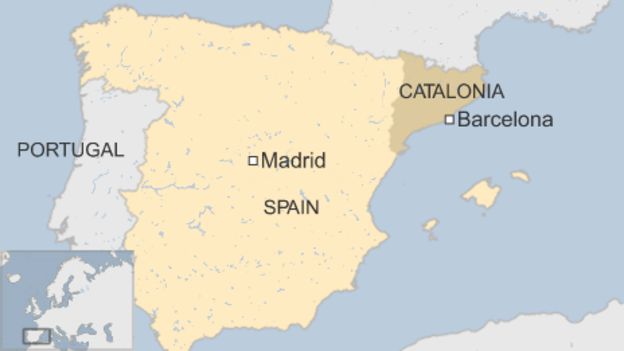How Its Overreaction Legitimized the Call for Independence
Madrid responded to this weekend’s referendum on Catalan independence by sending in thousands of police, who beat up voters and shot nonviolent activists with rubber bullets. It is difficult to picture a more counterproductive course of action. According to the polls, independence was not heavily favored leading up to the referendum and most Catalans already considered the vote illegitimate. The Spanish government could have stuck to a simple playbook: allow the referendum to proceed and affirm the results if it failed and declare them null if it succeeded. This is the example set by Canada in 1995, the United Kingdom in 2014, and Iraq earlier this month. If the Spanish government had downplayed the vote, the world would have quickly forgotten about it. Instead, they have grabbed headlines by breaking the key international norm of tolerating peaceful demonstrations and supporting democratic representation.
If the Spanish overreaction continues apace, other countries will start expressing concern for the situation in Catalonia, and officials in some (especially former colonies) will start discussing Catalan claims. They may even bring votes before international bodies such as the UN or EU. If violence persists after that, Catalans may organize to establish diplomatic ties with other countries, and those governments might be open to it for the first time. It is a slow, deliberate process to sever one territory from another, and it most often stalls short of universal international sovereignty. However, violence and suppression of self-expression are some of the most useful catalysts for moving that process along.
If the Spanish government wants to get back on the right side of the news, it should seek every way to reestablish the legitimacy of its government in Catalonia. A good-faith effort to move toward a federalist system in Spain may be one way to take off the pressure; reversing the incendiary 2010 court decision to strip the region of certain autonomous powers—over language, the judicial system, and other rights of self-rule—may be another. Madrid should certainly not suspend Catalan autonomy unless it wants to see a continued confrontation that will only be characterized as a return to Spain’s dictatorial past. One way or another, its actions have eroded its standing. It now needs to take deliberate measures to demonstrate that Catalans are respected by the government as Spaniards and that their interests are well received in Madrid.
Otherwise, Catalans may soon be much more successful when they reach out to increasingly sympathetic countries for support.






























